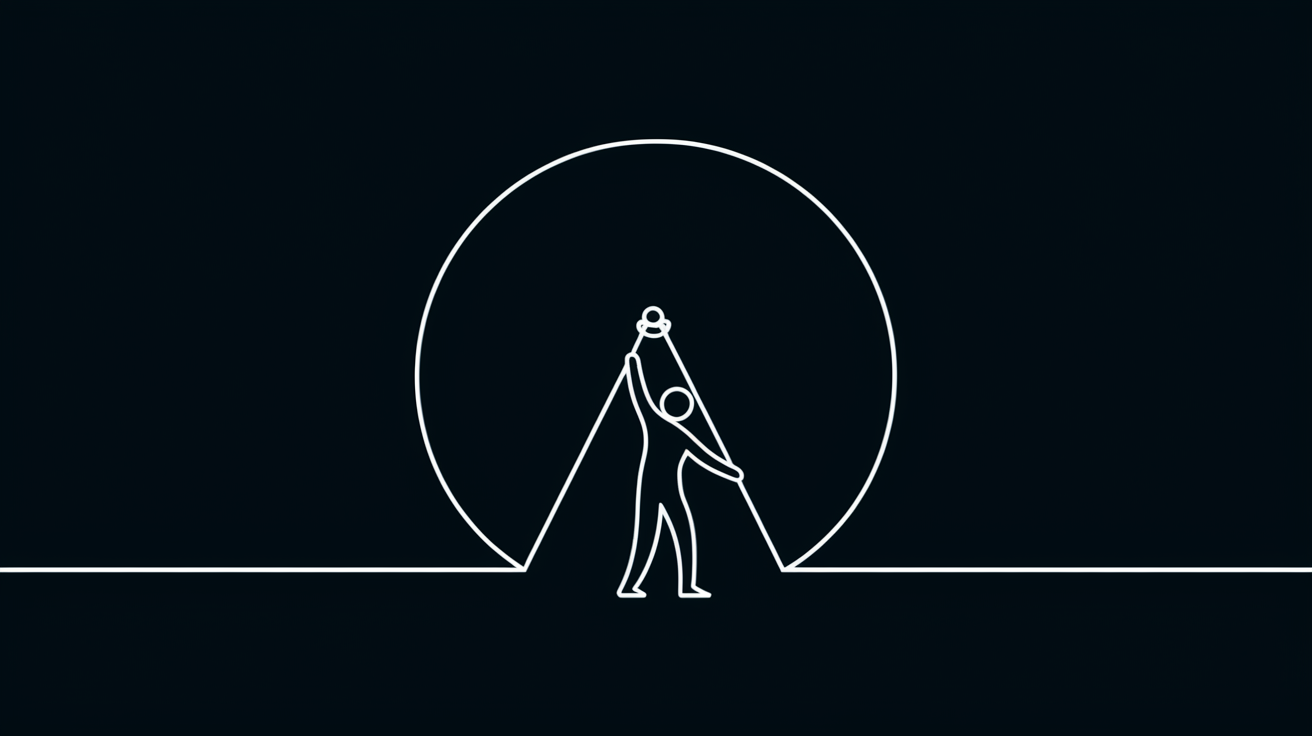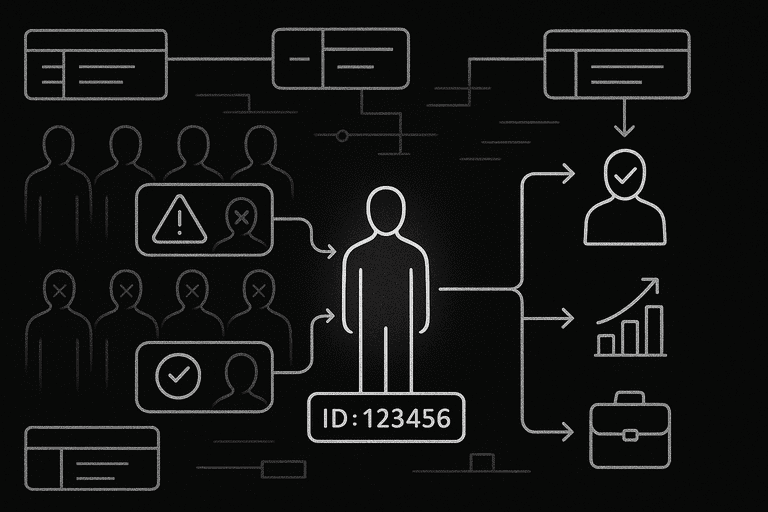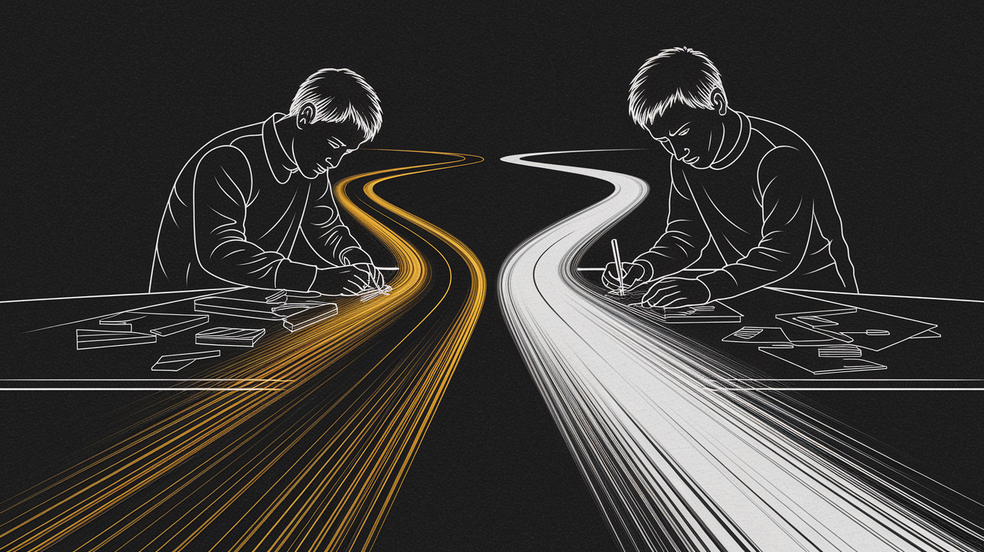Have you ever abandoned a project halfway because it wasn’t meeting your impossibly high standards?
Or perhaps you have brilliant ideas that remain perpetually stuck in the planning phase because the timing never feels quite right?
I’ve been there. And I’ve watched countless talented young Nigerians fall into the same trap.
Let me tell you why perfectionism might be the very thing standing between you and the success you deserve – and how to break free from its paralyzing grip finally.
The Hidden Cost of “Getting It Right”
I remember when I was growing up, especially in primary school (the good old days), I was always praised for being one of the best students; I can still remember vividly, from primary 3 to primary 6, I was the best student in my class practically every term.
“Excellence is not an act but a habit,” my teachers would say. This mindset followed me into my early career aspirations, where I believed that anything worth doing was worth doing perfectly.
Don’t get me wrong—doing perfect, quality work is EPIC, but when it affects your progress, you need to check it.
When I first began teaching myself programming, I approached it with the same perfectionist mindset. I would start building a project, become frustrated when it didn’t immediately match the professional work I admired, and either abandon it or endlessly revise it without ever completing it.
One particular memory stands out. I spent an entire week struggling with the CSS Box Model – a fundamental concept in web development.
Instead of making progress through imperfect practice, I was frozen by my inability to understand it perfectly on the first try.
“Real programmers would get this immediately,” I told myself. “Maybe I’m not cut out for this after all.” This perfectionism wasn’t pushing me toward excellence. It was pushing me toward quitting altogether.
The Four Faces of Perfectionism
What I’ve learned through both personal experience and mentoring others is that perfectionism manifests in four destructive patterns:
- Paralysis by Analysis: You spend so much time planning and researching the “perfect approach” that you never actually start
- The Endless Edit: You create something but can never finish it because it’s never quite good enough
- The Hidden Masterpiece: You complete your work but keep it hidden from the world, waiting for that final polish that never comes
- The Impossible Standard: You measure your beginner efforts against experts’ finished products, creating a comparison that guarantees disappointment
These aren’t just psychological curiosities – they are career killers. They keep your talents hidden, your skills undeveloped, and your potential unrealized.
Why Perfectionism Is Not What You Think It Is
There’s a profound misunderstanding about perfectionism that keeps us trapped in its cycle.
I want you to know that I’m speaking from experience.
Perfectionism isn’t about high standards. It’s about fear and control.
When we demand perfection from ourselves, what we’re really saying is:
“I’m afraid of being judged.”
“I’m afraid of being vulnerable.”
“I’m afraid of discovering I’m not as talented as I hope.”
“I’m afraid of putting in the work and still falling short.”
It’s a defense mechanism that prevents us from facing the discomfort of being beginners, of making mistakes publicly, and of receiving criticism.
But here’s the devastating irony: this fear of failure guarantees failure by preventing the very process that leads to mastery.
The Iteration Breakthrough
My perspective changed completely when I stumbled upon a quote from designer Reid Hoffman:
“If you’re not embarrassed by the first version of your product, you’ve launched too late.”
At first, I rejected this idea. Indeed, excellence was about getting it right from the beginning.
But then I looked at the actual journey of every expert I admired:
- The programmer whose early GitHub projects were full of messy code
- The writer whose first drafts were nothing like their published work
- The entrepreneur whose first business failed before they built a successful one
The pattern became clear: Mastery doesn’t come from perfection. It comes from iteration.
This revelation transformed my approach. Instead of perfecting the CSS Box Model in one sitting, I gave myself time for my subconscious mind to process the new information. I broke it into tiny pieces, and I celebrated understanding each small part.
And something miraculous happened – I progressed faster than ever before. The freedom from perfectionism didn’t lower my standards; it actually helped me reach higher levels of excellence through consistent improvement.
This approach ultimately let me on the right path in my early career as a web developer aiming for a world-class standard
How To Breaking Free
If perfectionism has been holding you back, here’s how to break free from its grip:
1. Embrace the MVP Mindset
The tech world uses the concept of a Minimum Viable Product (MVP) – the most straightforward version that can work. Apply this to everything:
- Don’t worry about writing a bestseller, just write
- Don’t worry about building the perfect app, just build
- Don’t worry about creating viral content, just create
Get the ugly first version done. Then iterate.
2. Set Process Goals, Not Outcome Goals
Instead of “I need to create perfect code,” try “I will code for one hour each day.”
Process goals focus on what you can control – your effort and consistency. Outcome goals often trigger perfectionism because they demand specific results that may be beyond your current skill level.
3. Practice Deliberate Imperfection
This was a game-changer for me. Intentionally release work that you know could be better. Start a blog with simple posts. Share code that works but isn’t optimized. Create videos without perfect editing.
This practice builds the “muscle” of sharing imperfect work and helps you see that the consequences of imperfection are rarely as severe as you imagine.
4. Build a Feedback Loop
Perfectionism thrives in isolation. When you work alone with only your internal standards, the bar constantly rises beyond reach.
Instead, create regular opportunities for feedback. Join communities where you can share work in progress. Find accountability partners who expect consistent output, not perfect output.
The external perspective helps calibrate your internal standards to something more realistic.
My Personal Turning Point
I remember the exact moment my relationship with perfectionism changed forever.
After struggling for days with a programming concept, I finally decided to post my half-working, definitely not perfect code on a forum.
I was terrified. Surely, the “real programmers” would mock my amateur efforts.
Instead, someone pointed out a simple fix I’d missed and praised my creative approach to other parts of the problem.
That feedback solved my immediate issue and showed me that imperfect work shared is infinitely more valuable than perfect work that never leaves my computer.
That shift in mindset – from perfectionism to progress – became the foundation for every success that followed.
The Path Forward
The pursuit of excellence is admirable. But true excellence comes through iteration, not immediate perfection.
Each time you catch yourself stuck in the perfectionism trap, remember:
- The expert you admire was once a beginner, making numerous mistakes
- Your imperfect contribution today is worth more than your perfect contribution someday
- Every master became a master by being willing to be a messy beginner first
The world doesn’t need your perfection. It needs your contribution, your unique perspective, and your willingness to show up and create—even when it’s not perfect yet.
Especially when it’s not perfect yet.
Because that’s how growth happens; that’s how mastery develops. That’s how dreams become reality.
Not through perfectionism but through progress. One imperfect step at a time.
—Destiny.
What project have you been putting off because of perfectionism? Share in the comments below, and commit to one imperfect action you’ll take this week. I’ll personally hold you accountable.






